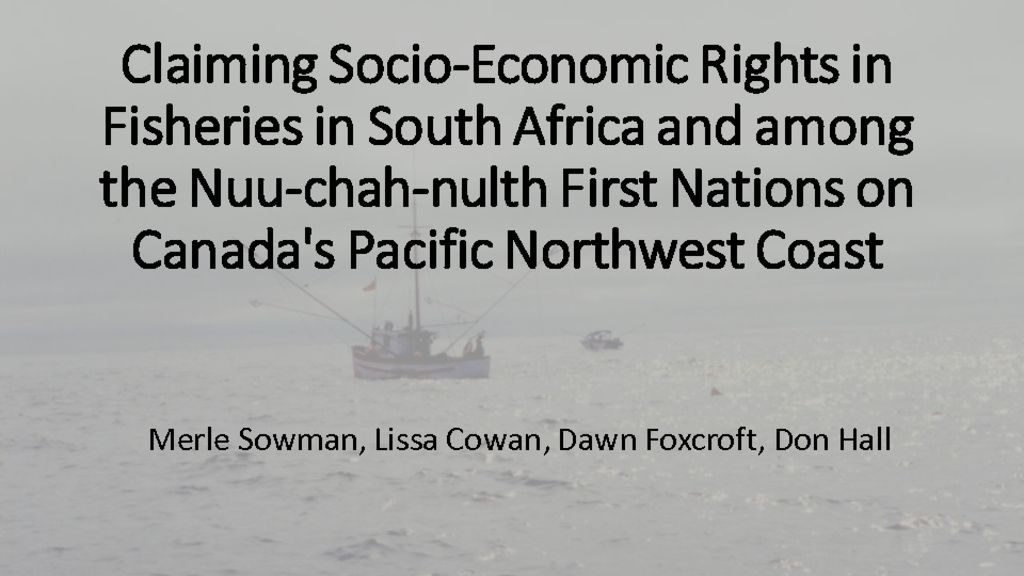23 May Claiming socio-economic rights in fisheries in South Africa and among the Nuu-chah-nulth First Nations on Canada’s Pacific Northwest Coast
Dispossession and restricted access of Indigenous Peoples to traditional lands and waters are a common feature in many of the world’s coastal areas due to the economic value of resources found in the coastal zone (e.g., mineral resources, forest products, wildlife, and fisheries resources) and the disregard for Indigenous Peoples’ rights, cultural practices and systems of governance. This ongoing disregard for indigenous peoples’ rights and needs continues despite the existence of a raft of international and regional instruments to respect and protect such rights. Here we examine the dispossession of local indigenous people to traditional fishing grounds and adjacent lands in South Africa and Canada’s Pacific Northwest Coast and the struggles and strategies employed to secure rights of access to these areas and resources. Dispossession and restricted access have been a feature of South Africa and Canada’s socio-political past from earliest Colonial times until the present time. From early Colonial times in Canada and in South Africa, forced removals of Indigenous Peoples from traditional lands, restrictions on customary fishing, hunting and forestry practices were largely driven by racially based ideologies supported by discriminatory policies and laws that facilitated ownership of and access to common pool resources for a particular sector of the population. However, despite the demise of these oppressive and discriminatory regimes and the promulgation of legal provisions in both countries to support redress and restoration of socio-economic rights, these rights have not been secured and customary systems of marine resource governance have not been respected.
Key Themes:
Indigenous Issues, Governance, Rights & Conflict, Livelihoods, Engagement, Education & Empowerment
Presenters:
Merle Sowman (University of Cape Town)
Dawn Foxcroft (Nuu-chah-nulth Tribal Council)
Don Hall (Nuu-chah-nulth Tribal Council)
Lissa Cowan (Nuu-chah-nulth Tribal Council)
During this session, presenters offered comparative account of the struggles of traditional fishers in South Africa and the Nuu-chah-nulth First Nations in Canada to have their socio-economic rights to fisheries resources recognised and restored. A historical review of the two contexts, outlining the marginalisation and exclusion of these groups from the mainstream economy, examines the efforts and strategies of traditional fishers to have their rights to marine resources recognised through legal action.
Presented Material:



